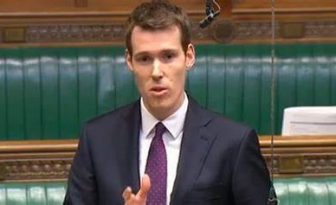
On Saturday 6th July, barely 24 hours after Keir Starmer strolled into Downing Street as a victorious Prime Minister, a new Minister Of State for Levelling Up, Housing and Communities was appointed.
Newly elected Matthew Pennycook MP is our latest Housing Minister and reports to Secretary of State Angela Rayner. He has special responsibility for housing but tellingly it appears that his role will not attend Cabinet. It’s my view that the housing brief and in particular the country’s (lack of) supply of new builds is so crucial that this position should sit in Cabinet yet that is an upgrade that the PM has not deemed a priority.
So, who is Matthew Pennycook? What does his history as a politician suggest he will be like?
Matthew Thomas Pennycook is 41 years old and was educated at a state school in New Malden. He has a somewhat ambiguous degree in History and International relations and could be described as ‘academically smart’.
He was elected as Labour Member of Parliament for Greenwich and Woolwich in the 2015 General Election and prior was a councillor in Greenwich from 2010 until the House of Commons beckoned.
So far, I’m not seeing a solid housing experience in his CV albeit that almost none of the previous regiment of Housing Ministers under the Conservatives had any such experience either.
But here’s the thing. Pennycook does have form on property matters – and it’s not exactly a record that’s conducive with the Labour Party’s election pledge to build 1.5M new homes over the next five years, a 50% uplift in what’s been delivered in the last five.
Our new minister is a NIMBY.
“It is crucial that as many local residents as possible who have concerns about this development proposal, and who have not previously submitted concerns to the council, object”, he told the local press in August 2020 in relation to a small block of flats that was proposed to be built in Charlotte Turner Gardens, SE8. The planning application was later rejected.

And in 2021, no doubt sensing some anti-development momentum Mr Pennycook formally objected to 1500 new homes in a mixed use scheme planned at Morden Wharf in his constituency, 600 of which would have been affordable and social homes. 1100 jobs would have been created, says the developer.
If this all sounds a bit familiar, successive Conservative Ministers would entice about the virtues of ‘more new homes’ needed across Britain but when faced with new homes in the areas that they represented, would object for fear of upsetting the locals. It’s hypocrisy of the most two-faced kind and is one of the reasons why the UK hasn’t built enough new houses since the early 1960’s.
Then in March 2022, Pennycock argued that housing supply is not a “panacea for affordability”.
You can make up your own mind from Matthew Pennycook’s actions, and his words, whether you think he will be a different, effective Housing Minister in Starmer’s new administration.
To ensure thoroughness I’ve also taken a look at ‘Mr NIMBY’s’ voting record in Parliament on other matters.
+ He generally voted against reducing the rate of corporation tax
+ Consistently voted against stronger tax incentives for companies to invest in assets
+ Consistently voted against making it easier to remove those trespassing on land with an intent to reside there
+ Generally voted for more EU integration
+ Consistently voted against reducing capital gains tax
On the subject of housing, if you were anticipating a Labour government would genuinely be about change as is their campaign mantra, it looks like you might be disappointed.
Still, fewer new homes provided means higher house prices and therefore higher agency fees and so Matthew’s potential ineffectiveness might actually be a good thing for our sector.
As you were then.
Russell Quirk is co-founder of ProperPR, the property focussed public relations agency, and is a regular media commentator on housing and politics.


I think we can regard the opinions of a chap sat with a picture of the ex PM on his desk as a bit churlish and biased.
There’s a lot of anti- Labour rhetoric woes and scaremongering, yet a delve into the achievements of both administrations from an agent’s perspective, It was the conservative s who engineered the MIRAS crash and the SDLT holiday transaction crash and Labour were in power when the global economy took a hit in 2008- If it hadn’t been for that Labour had 2 years of sorting out the aftershocks of MIRAS, then 9 years of growth in the property market before Fannie Mae/Northern Rock
This all seem a bit Chicken Licken- the sky is falling down.
You must be logged in to like or dislike this comments.
Click to login
Don't have an account? Click here to register
Robert
I’m not a natural Labour voter and so you can call that ‘bias’ if you like even though I’ve applauded their policy on reclassifying the poor bits of the green belt.
However, partisanship doesn’t make facts not facts. Pennycook has proven, demonstrable history as a politician who blocks housing developments. The point is (and it’s a fair one) that this doesn’t bode well for Labour’s pledge to ‘build more’. Does it?
You see that logic, I’m sure, even though it comes from me, a person that you don’t like.
Hope Rumble’s launch, the longest in commercial history, is gathering pace now. Continents have shifted faster.
You must be logged in to like or dislike this comments.
Click to login
Don't have an account? Click here to register
My personal feelings towards you are irrelevant. Your critique of the new minister is biased, churlish, and disparaging. My post was aimed at discussing the broader issue of anti-Labour sentiment and the undue personal attacks on ministers who are newly in office. Try focusing on addressing the issues, not engaging in baseless attacks.
You must be logged in to like or dislike this comments.
Click to login
Don't have an account? Click here to register
Thoroughly agreed!
For some reason, there are a lot of people posting on this website who seem to think that Labour bad / Conservative good as far as our profession is concerned.
Having worked in the industry since 1991, starting my career as a junior negotiator amidst the devastation of the MIRAS crash, it occurred to me recently that ALL of my best years in the industry were under a Labour government and that the hardest years were always under a Tory government.
This is certainly true over the last decade as we have been through a complete rollercoaster ride of mismanaged disaster after mismanaged disaster.
The statistics speak for themselves really: over the last 35 years, the periods of calm, sustained growth in the economy have all been under Labour stewardship.
But for some reason, some people believe the opposite to be true.
I just can’t work out why… I’d love for someone to explain it to me.
You must be logged in to like or dislike this comments.
Click to login
Don't have an account? Click here to register
Sorry, could you remind me who was in power in 2008/9 when we had the credit crunch?
You must be logged in to like or dislike this comments.
Click to login
Don't have an account? Click here to register
Oh shock! Right wing antagonist doesn’t like Labour government after 3 days in power.
Have a day off Quirk and maybe give them more than week to get things underway.
You must be logged in to like or dislike this comments.
Click to login
Don't have an account? Click here to register
The concept of “trickle down economics” (TDE) has been thoroughly debunked. The following are all voting against the lie of TDE:
+ He generally voted against reducing the rate of corporation tax
+ Consistently voted against stronger tax incentives for companies to invest in assets
+ Consistently voted against reducing capital gains tax
Instead we find:
* Rich companies DO NOT typically re-invest money gained from tax cuts, they simply pay bigger dividends to their shareholders.
* Tax incentives for companies to invest in assets don’t work. In the UK, all assets are depreciating assets, except for properties. Companies only invest in infrastructure when there is a sensible business reason to do so. Otherwise the money gets paid to shareholders. Just look at the mess that our Water Companies are in…
* Rich people do not splurge out the benefits of CGT cuts, they simply squirrel the money away for a rainy day.
Therefore, his voting pattern is quite sensible.
With regard to Morden Wharf, a quick Google search shows that what he objected to was not the redevelopment, but the 4 high rise tower blocks which seems to be a reasonably sensible objection as far as I can see. The density is obscene and whilst there is pressure to deliver new homes, “crammin’ ’em in” is definitely not the way forward. The cost to leaseholders of maintaining a 36 storey tower block will become prohibitive.
You must be logged in to like or dislike this comments.
Click to login
Don't have an account? Click here to register